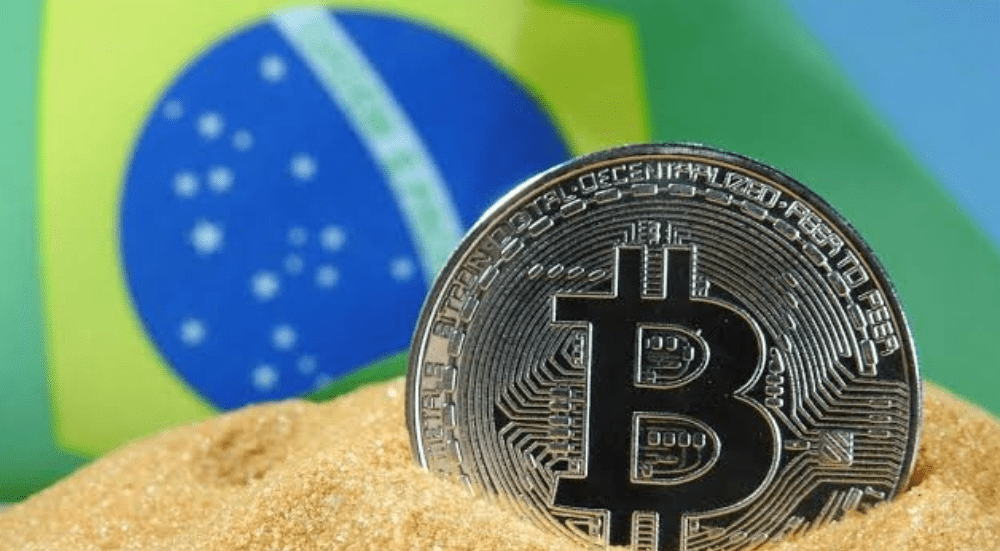
During the hearing in the Chamber, the Central Bank dismisses Bitcoin as a reserve asset due to high volatility, while the Ministry of Finance admits the possibility in a sovereign fund.
On this Wednesday, the 20th, during a hearing in the Chamber of Deputies, scheduled to discuss the creation of a strategic reserve of Bitcoin for Brazil, Luis Guilherme Siciliano, Head of the International Reserves Department, 'disapproved' the proposal.
According to him, Central Banks are conservative and should use reserve assets that do not face high volatility.
"Answering your question: central banks are naturally guided by conservatism. This means that international reserves need to be made up of low-volatility assets. In times of stress or extreme crises, including geopolitical crises, local markets experience strong spikes in volatility. Therefore, reserve assets must fulfill the opposite function: to provide stability, serving as protection for the central bank to use them in these critical moments.
Thus, according to Siciliano, assets like Bitcoin and other cryptocurrencies do not fit this profile precisely because of their highly volatile nature.
When a country needs to resort to reserves, it is essential that the assets are solid and secure. Even if a fraction of the reserves were applied to assets that are recognized as volatile, it would undermine the credibility of the monetary authority. After all, the function of reserves is precisely to ensure stability and trust. Thus, including cryptocurrencies in reserves could generate reputational risks and weaken the perception of solidity of monetary policy.
Furthermore, he states that there is the regulatory issue and there is still a lack of clear provisions that allow considering Bitcoin and other cryptocurrencies as eligible assets to officially compose a central bank's portfolio.
The Ministry of Finance is 'pro'-Bitcoin, but says it is still early.
Participating in the debate, Daniel Leal, representing the Ministry of Finance, pointed out that the government is not opposed to Bitcoin, however, he said that it is still early for this.
"I want to make it clear that I have no negative bias regarding Bitcoin itself. I recognize that it has gained relevance and value, as shown in the graphs presented. But it is important to differentiate the purposes. In the case of international reserves, as has already been explained, the purpose is much more linked to the financial stability of the country, managed by the Central Bank. On the other hand, a sovereign fund could indeed be managed by the Treasury. And then the logic changes: it would be up to the government to decide when and at what level to establish this fund. But for that, it would be necessary to create budgetary space," he said.
Thus, according to him, any acquisition of assets for the establishment of such a fund would require a fiscal effort from the country and therefore, it would be necessary to evaluate debt issuances, fiscal surpluses, or other measures.
"It is also worth noting that, considering the volatility, a sovereign fund of this type could not be constituted solely by Bitcoin. If, for example, the Treasury allocated 5% of the fund to Bitcoin, the other 95% would need to be in different and more stable assets. This means that the fiscal effort to sustain this fund would be many times greater than the amount invested in crypto-assets. Therefore, this discussion would require a deep dialogue between the Treasury and the Ministry of Finance, evaluating the appropriate timing, risks, and economic policy objectives. Unlike international reserves, which have a clear function of stability, a sovereign fund with crypto-assets would have another purpose, more related to long-term investment strategy.
For Mannah's CEO, Pedro Xavier, the significance of this agenda is more symbolic than practical, as the discussion is still in the legislative realm, but the more Bitcoin is debated and recognized as a strategic asset, the greater the knowledge of the authorities and consequently the greater the acceptance by the population.
According to him, in a scenario where Brazil faces sanctions in important sectors and the president signals alternatives to the dollar, this movement may accelerate the government's need to better understand the crypto market.
Having Bitcoin in reserve is strategic in the long term and would bring partial decoupling from traditional assets, functioning as a hedge in scenarios of global inflation, monetary printing, or geopolitical tensions. Bitcoin is considered 'digital gold' and is already part of the reserves of countries like the United States, the United Kingdom, and even China. All major developing countries are moving towards this. I am personally a bit pessimistic about Brazil moving quickly in this direction. Nevertheless, perhaps American sanctions will help in this regard," explains Xavier.
